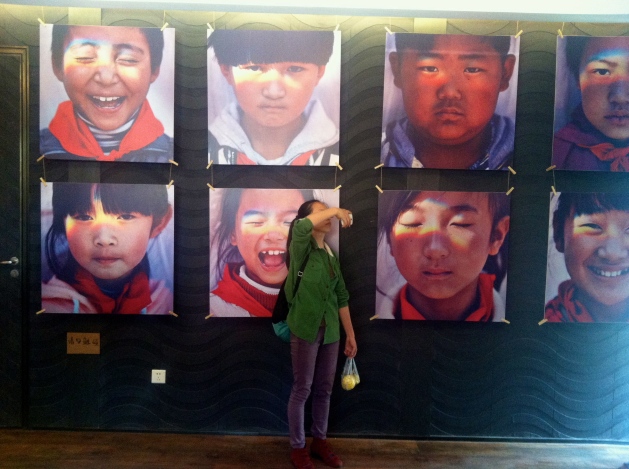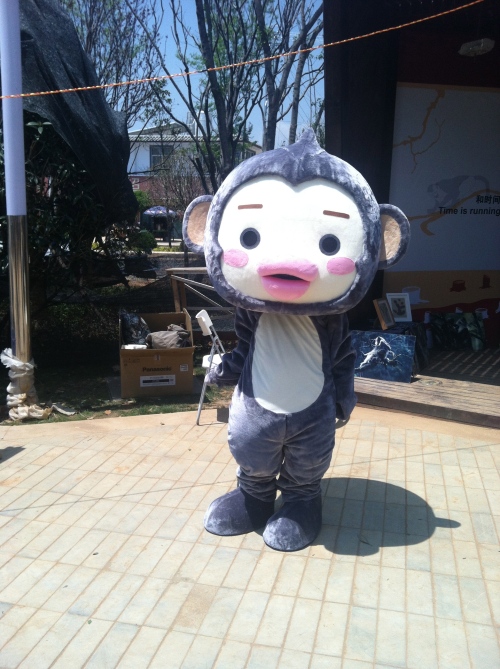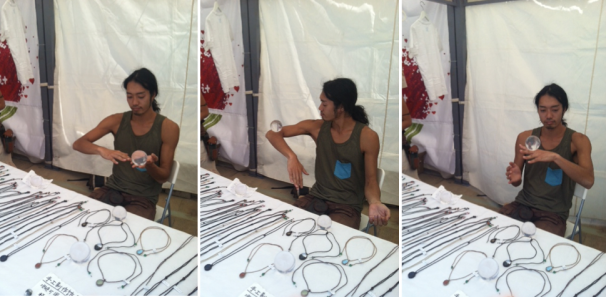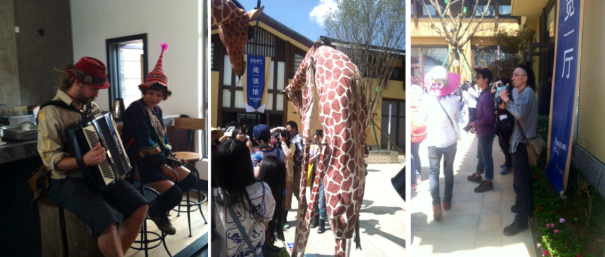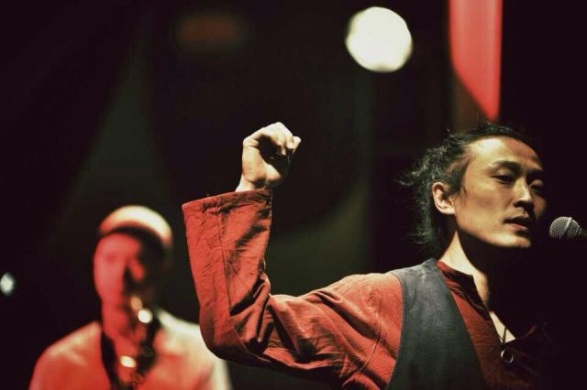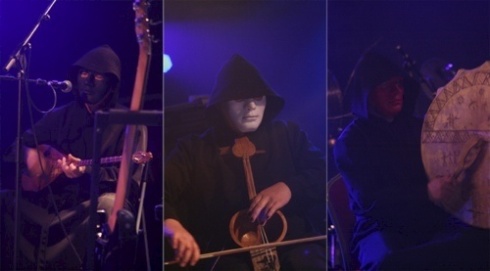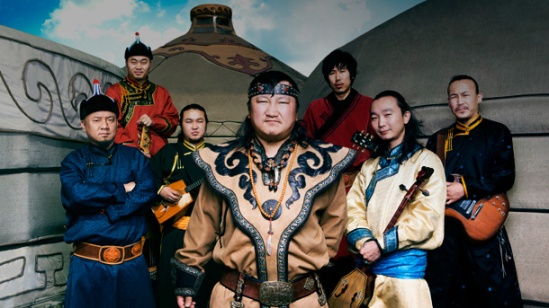I just spent five days eating granola and potato salad, telling tattooed tourists about snub-nosed monkeys, attending free concerts, and drinking wine with long-haired journalists.
The COART festival in Shuhe (just north of Lijiang) lasted from April 23rd-27th. This biannual arts celebration is a conglomeration of nature, culture, food, and art, featuring five full days of farmers’ markets, art exhibitions, and musical performances. This year, The Nature Conservancy was in charge of the farmers’ market portion. The Yunnan snub-nosed monkey became the mascot of the festival as we handed out postcards to tourists and encouraged donations in exchange for stuffed monkeys, agricultural products, and other gifts. The Yunnan snub-nosed monkey is endemic to northwest Yunnan and parts of Tibet, and only 300 of them remain within the Lijiang administrative area, scattered in the remote forests of Laojun Mountain. To raise awareness of the monkey’s plight, we even had a gigantic monkey mascot costume that we took turns wearing. It was hot and hard to see inside that giant head, but it sure caught people’s attention!
Members of China’s small but active alternative subcultures crawled out of the woodwork to attend the festival, often in full hippy regalia. Never have I seen so many dreadlocks, straw sandals, and linen harem pants in one place. Foreign artists and tourists from all over the world strolled through the market and mingled with the locals, sampling granola and buying jewelry and participating in street performances.
I met a Chinese documentary maker with bleached yellow hair who introduced himself to me as Harry Potter and insisted on filming me eating pasta for his documentary. I assume that this was because I was the only conspicuous foreign girl there, and not because I am especially elegant at eating pasta. I met a Japanese jewelry maker, fire performer, and crystal ball enthusiast who spoke very good English but not a word of Chinese. I also met an American accordion player in a Robin Hood cap with a feather, and a German guy who spent one afternoon whittling a pan flute made from some bamboo he found growing against a building.
The festival atmosphere exploded every evening, when all of Shuhe crowded into the center square for free live music performances.
Among the more noteworthy musical acts was Dawanggang (大忘杠), a band from Beijing that blends contemporary rock and experimental music with traditional Chinese folk songs from many different ethnicities. Their music was very dark but oddly compelling, and lead singer Song Yuzhe was certainly easy on the eyes 😉
Another intriguing act was Xiangma Bande (响马乐队), a trio of ethnic Kazakhs who play traditional instruments cloaked all in black, with masks on their faces. Their highly rhythmic and percussive music ranged from meditative to frenetic. With their faces and bodies hidden, my eyes were drawn instead to their hands, and I was forced to pay attention to the instruments themselves.
The biggest highlight of the festival by far was Hanggai (杭盖乐队), a Beijing band that reinterprets traditional Mongolian songs and instrumentation for the rock n’ roll youth of modern China. Lead singer Hurcha is like a biker-punk Genghis Khan with his long hair, ample girth and leather jacket, and he gleefully sprayed the front row of the audience with beer during the raucous Drinking Song (酒歌). Hanggai’s passion and energy was so infectious that the packed square demanded three encores. After the show, I was lucky enough to meet two members—bassist Niu Xin and horse-head fiddle player/throat singer Bagen—and even though I had never even heard of Hanggai until that night, I felt like a teenage groupie asking her boy-band crush for an autograph (although I didn’t actually ask for an autograph).
After COART ended, the next day was rainy and cold. My fellow Nature Conservancy volunteers and I dragged ourselves into the office, sunburned and exhausted, with the Drinking Song still ringing in our ears. Although the dreadlocked hippies have since dispersed, leaving behind only the commercialized tourism of ordinary Lijiang, my ears won’t stop ringing for a long time. Art and creativity don’t need a festival to flourish. I hope I can keep some of that inspiration with me in my everyday life, even if it just means carrying a sketchbook in my bag, listening to some cool new music, and rocking out in a full body monkey costume from time to time.

